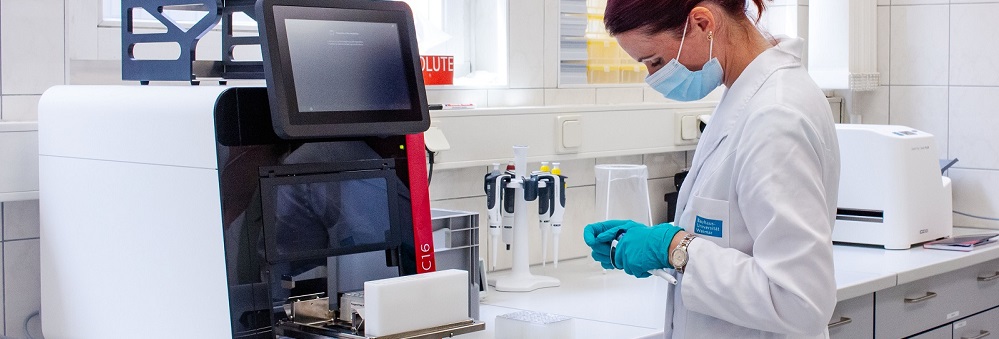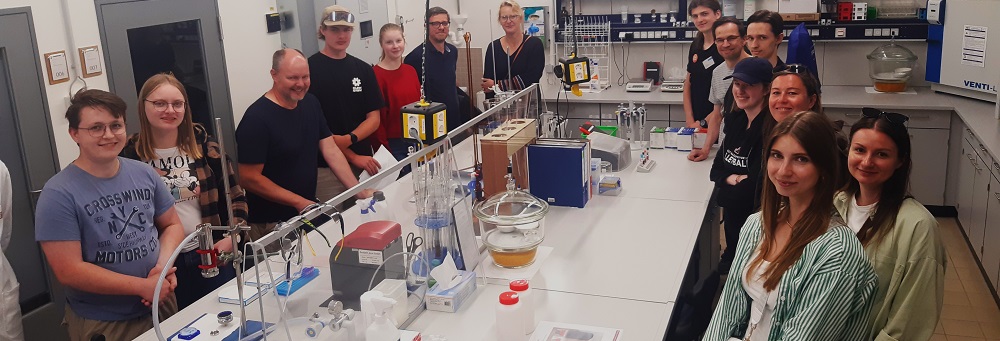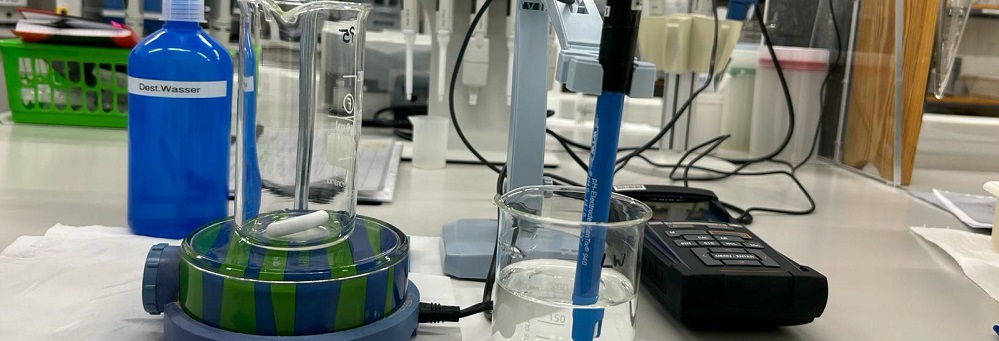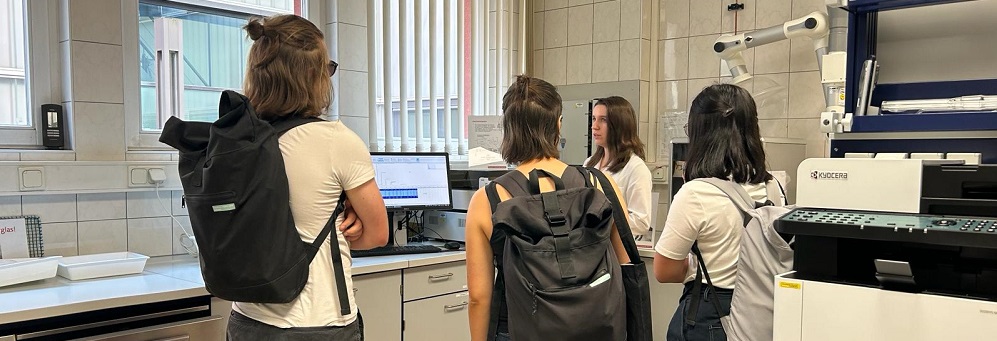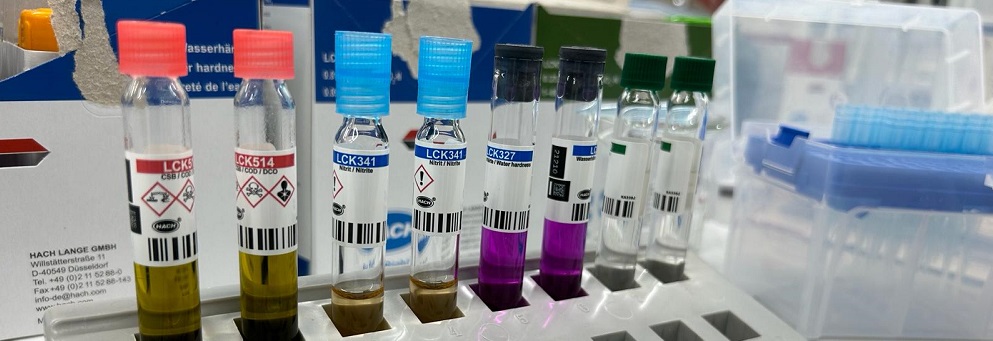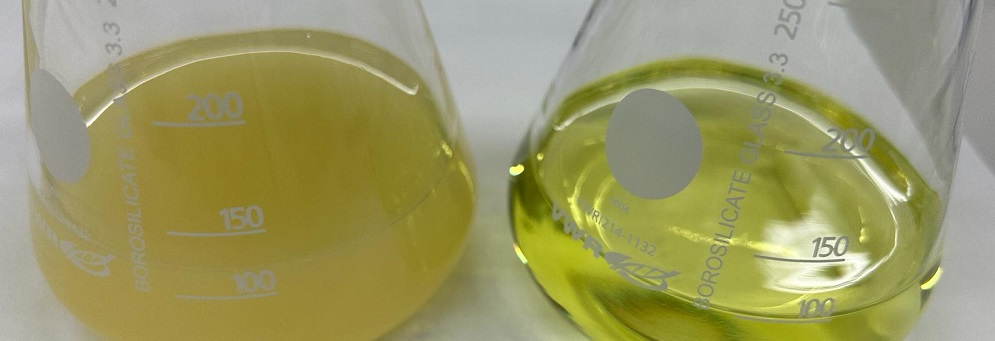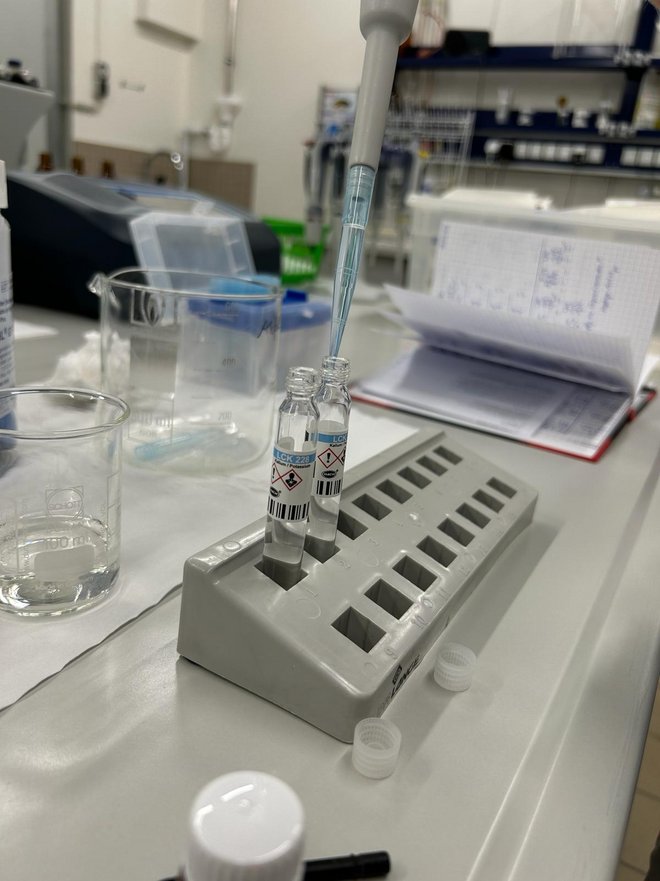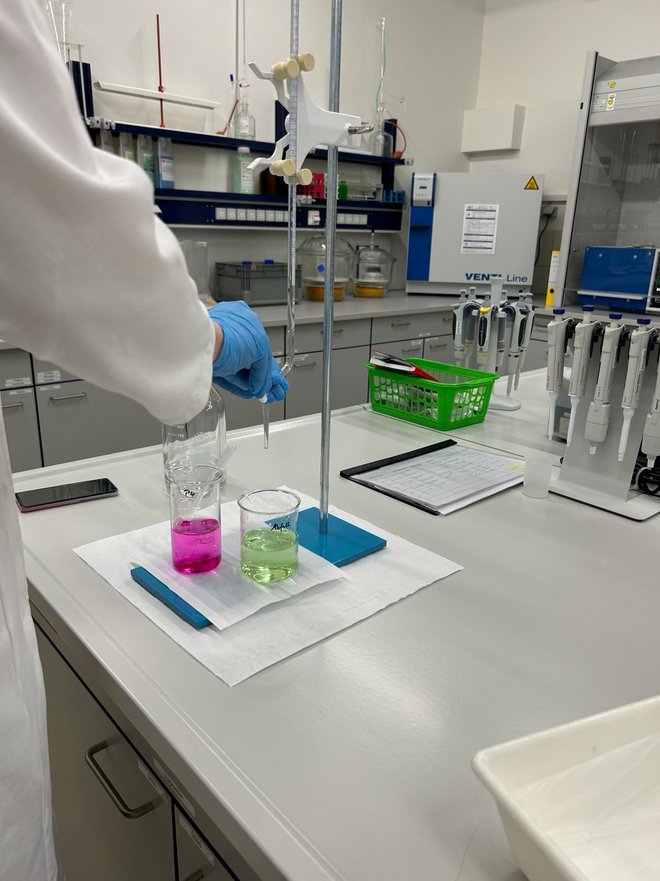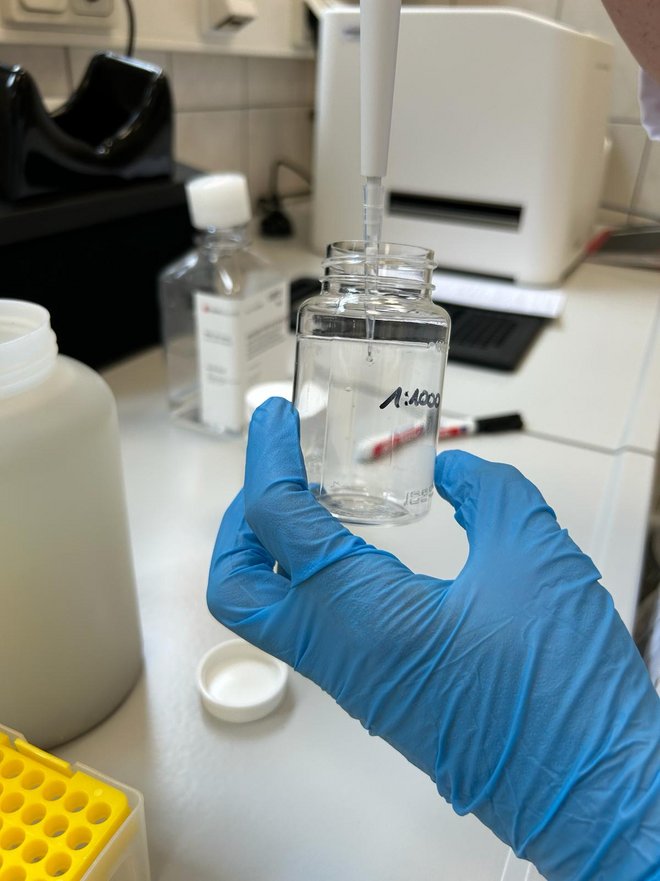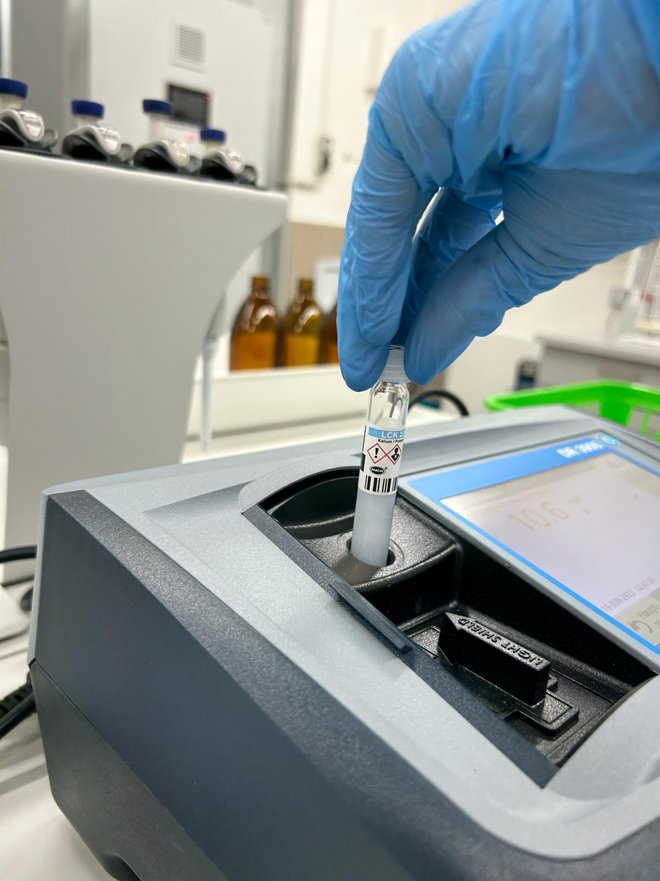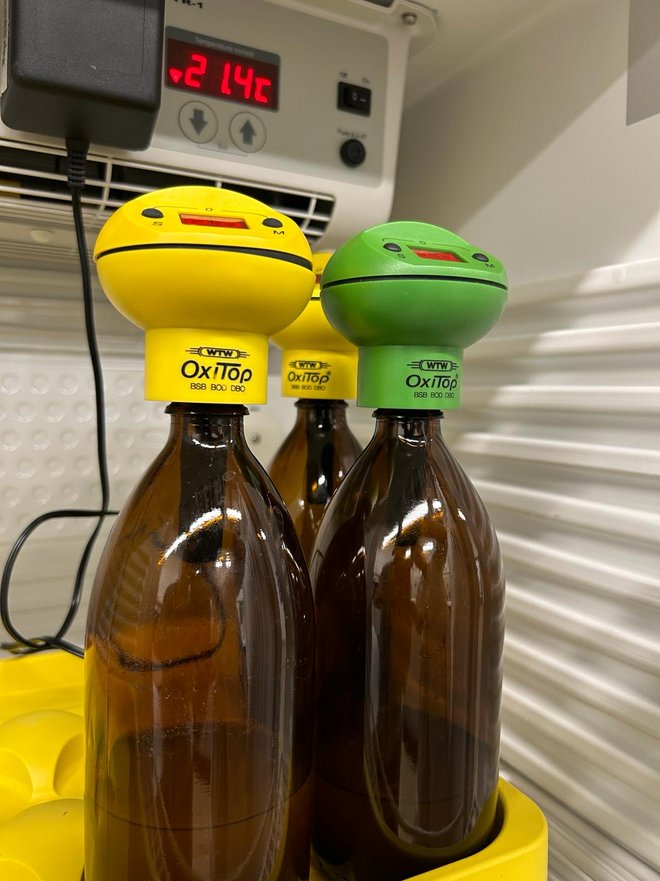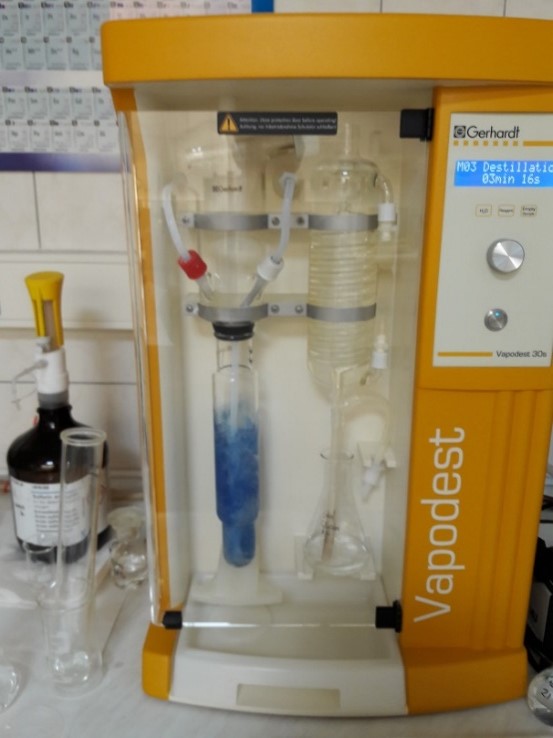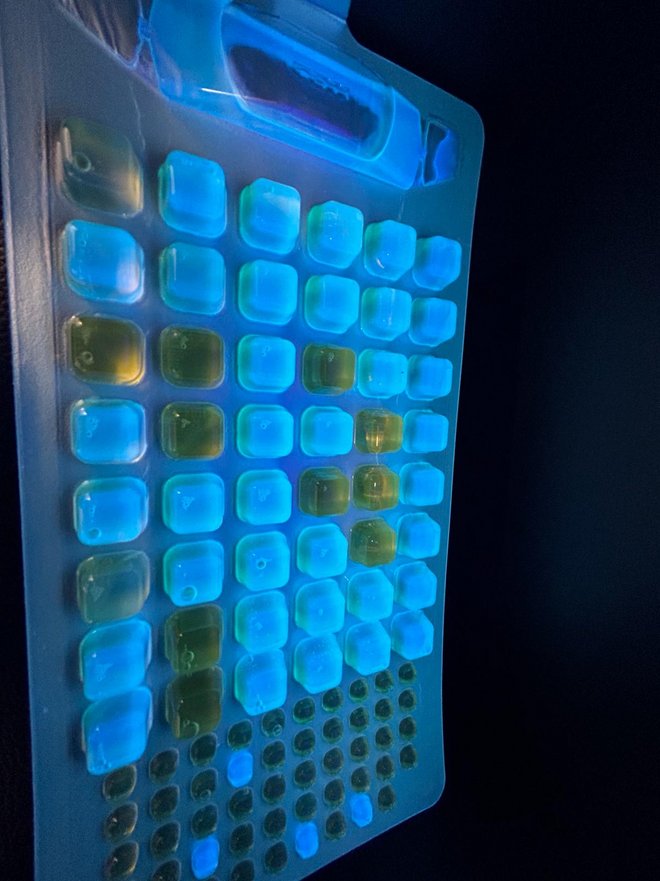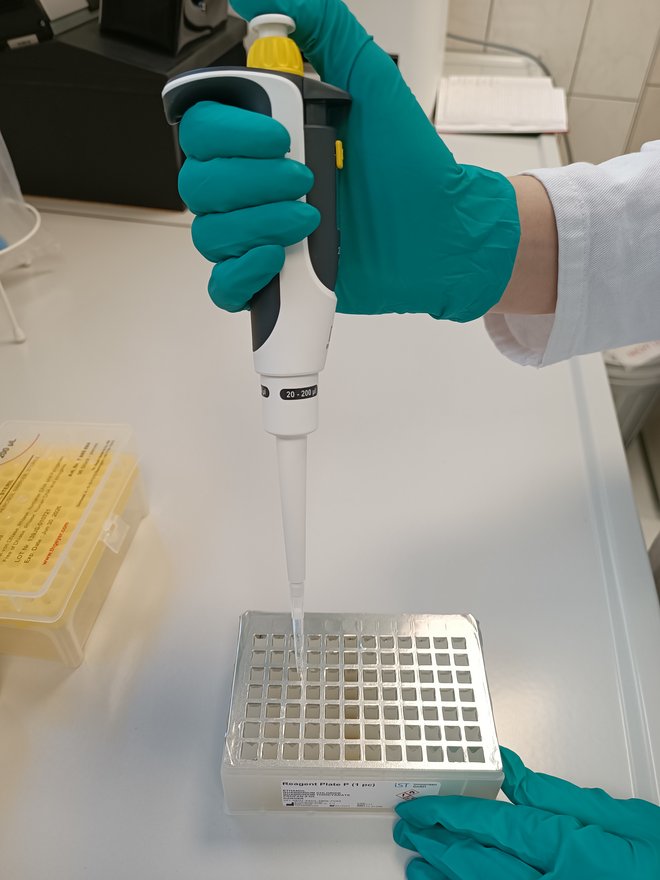Laboratories
The Bauhaus Institute for future-oriented Infrastructure Systems (b.is) has an efficient laboratory which is responsible for research projects in the field of urban water management (Siwawi & TuS projects) and resource management.
The laboratory's work is related to the development of processes for material flow utilization, processes for the removal of trace substances and the development of processes based on novel sanitation systems (NASS) as well as the transition to new infrastructure systems through water reuse. Since 2022, the laboratory has focused on microbiology, for example to promote wastewater-based surveillance.
The laboratory has very high quality standards and strict quality assurance measures. The laboratory has a large fleet of equipment and materials at its disposal for carrying out research questions and student work.
A laboratory container is also part of the b.is laboratory. This mobile test facility makes it possible to carry out laboratory tests directly on site.
Laboratory areas
Analytics I - Wet Chemistry/Sample Preparation
- pH/ conductivity/ O2 measurements
- Quantitative analyses (volumetry)
- Drying and combustion methods (TR/ oTR)
- Photometry (cuvette test using HACH LANGE)
- Filtration processes using pressure and suction filtration
- Microscopy
- Sludge volume
- Settleable substances
- CSB
- BSB5

